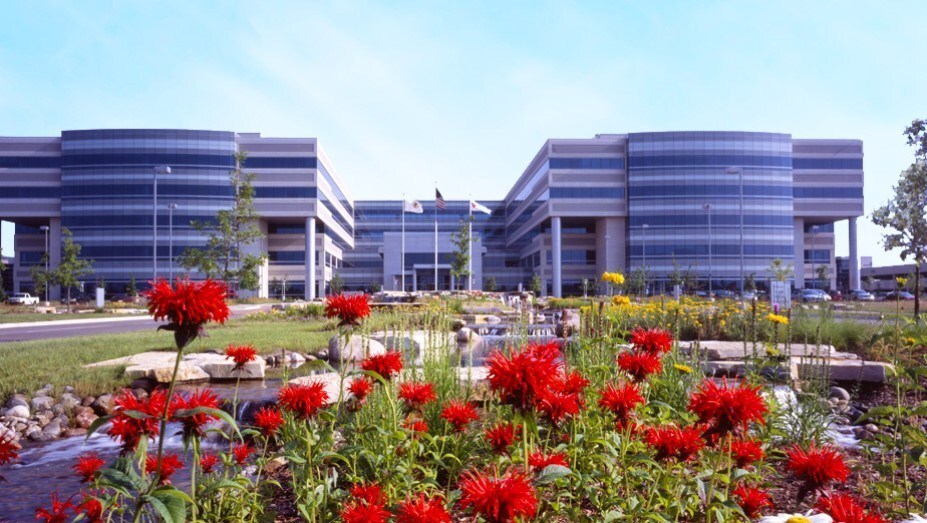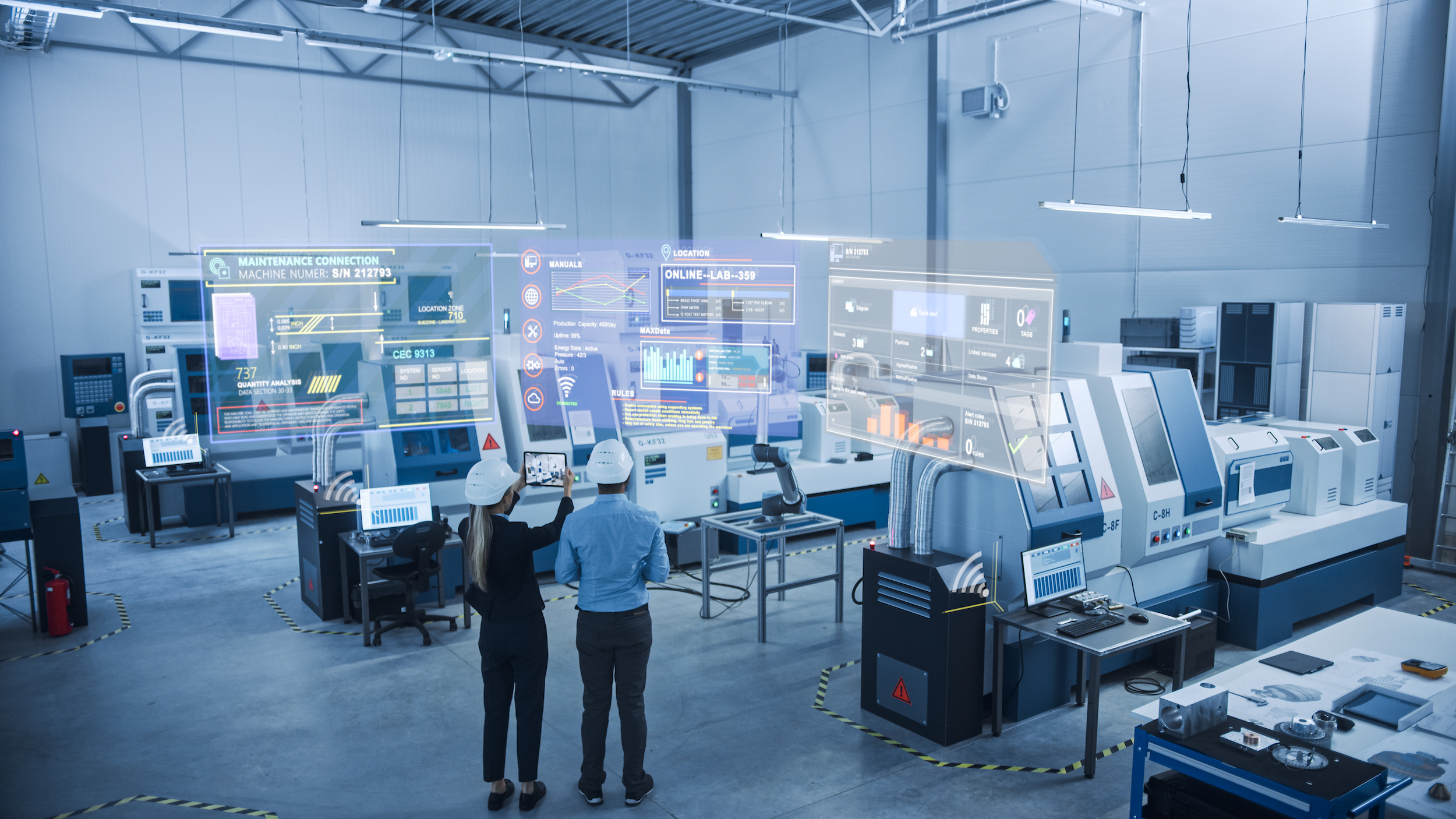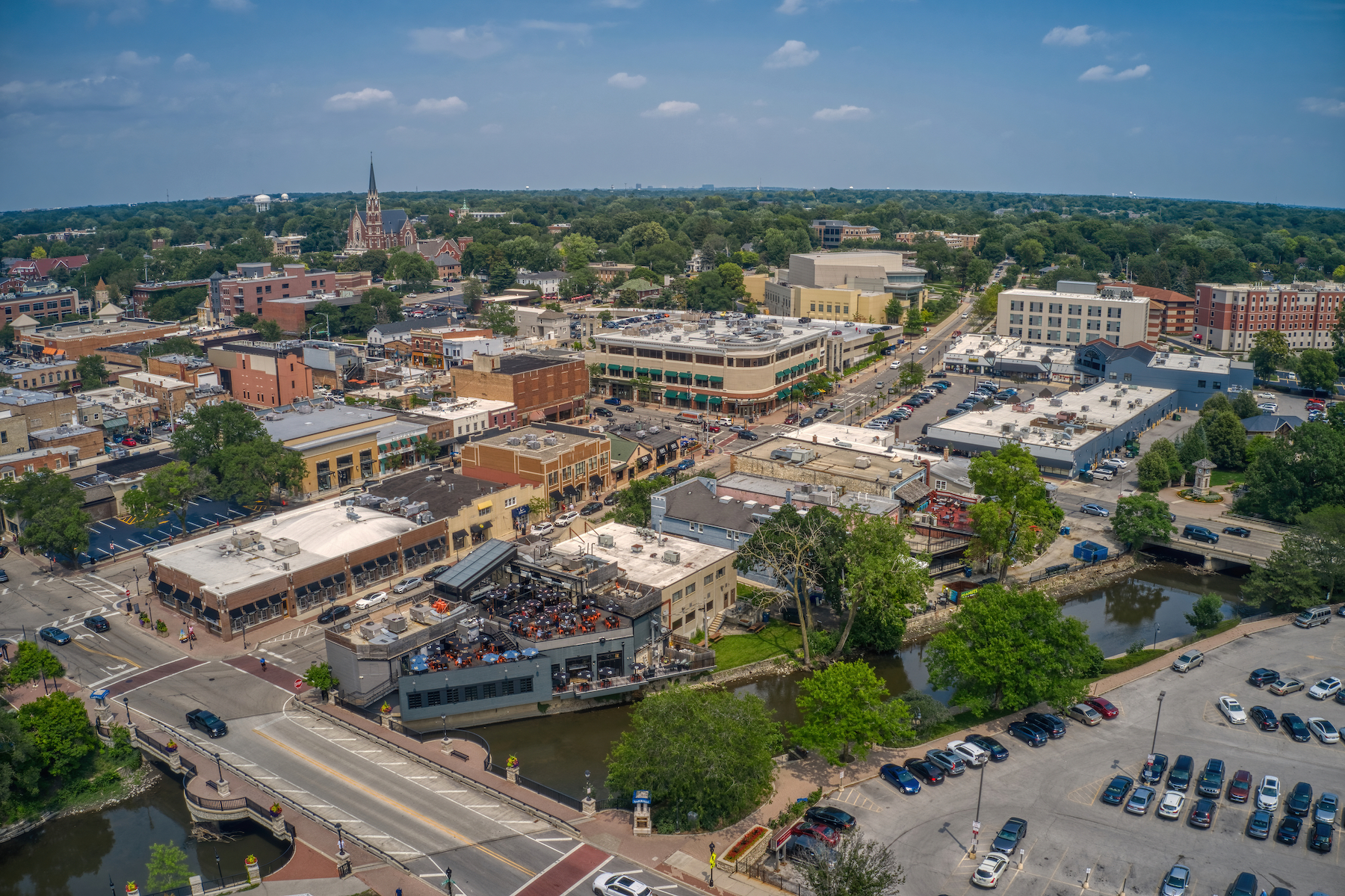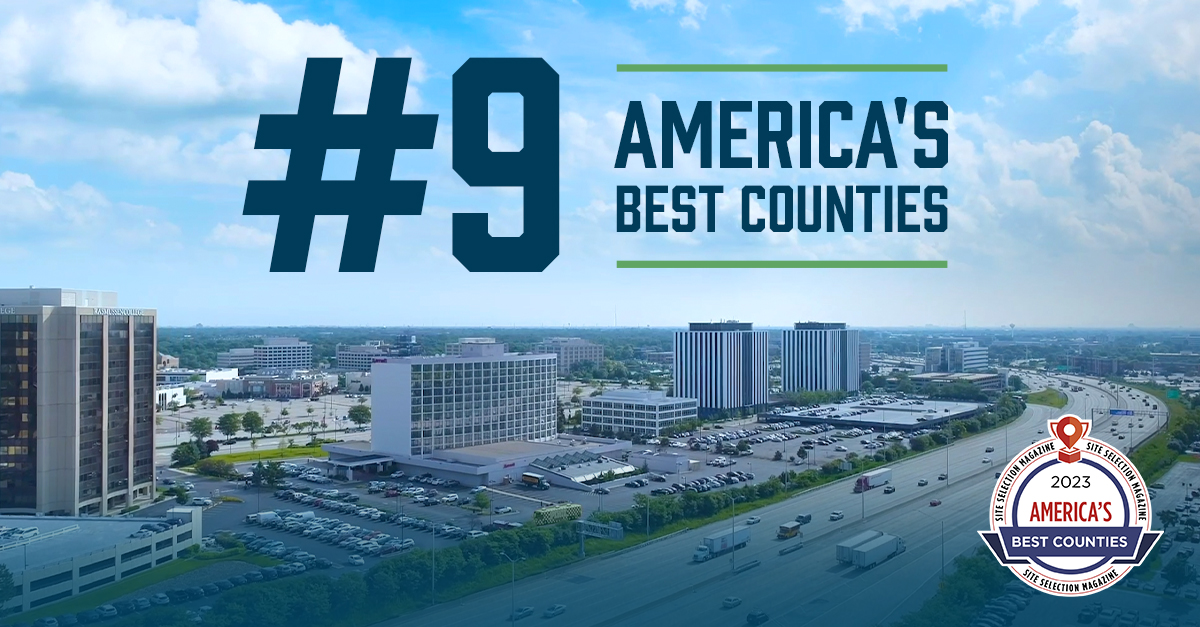Setting sustainability goals is one thing; finding a path toward accomplishing them is another. Whether it’s purchasing new energy-efficient industrial properties while moving your business, retrofitting your current office space to help lower your utility bills, or anything else of the sort—there are a multitude of factors for you to consider.
Finding the right guidance and resources makes the process a lot simpler.
A regional leader in promoting sustainable business, DuPage County offers a wealth of opportunities for companies of all sizes and industries looking to grow their operations while shrinking their carbon footprint. From federal tax benefits and state sustainability certifications to private-sector commercial energy incentives and more, going green has never been easier—or more rewarding.
Sustainable DuPage, a partnership between Choose DuPage and the DuPage County Environmental Division, helps business leaders navigate this ever-evolving landscape.
By connecting them with resources, financial incentives and education that promote sustainable practices, we’re empowering them to help their communities become cleaner, safer and more prosperous. Keep reading to discover some of these featured programs and the business opportunities they can unlock.
1. DSIRE DATABASE
DuPage County businesses looking to bolster their sustainability efforts should start by exploring the DSIRE (Database of State Incentives for Renewables & Efficiency) database. On their website, you’ll find a free state-by-state master list of energy-related incentives and resources tailored to utility-scale, commercial and residential customers. Click here to view programs available in Illinois.
2. COMED ENERGY INCENTIVES & REBATES
Supplying energy to more than 4 million customers in Northern Illinois, Commonwealth Edison Company (ComEd) plays a key role in promoting energy efficiency in DuPage County and beyond.
Taking advantage of their commercial incentives can lead to significant sustainability savings for your business via immediate equipment discounts (lighting and HVAC, refrigeration, lab equipment, variable speed drives, etc.) and subsequently, reduced energy consumption.
Additionally, ComEd provides valuable rebates for businesses and households generating solar energy in DuPage County. Helping offset the out-of-pocket costs of installing a qualified renewable energy generating system, their Distributed Generation (DG) Rebate program offers rates of $250 to $300/kW for customers who connected after August 11, 2022.
3. SECTION 179D COMMERCIAL BUILDINGS ENERGY TAX DEDUCTION
Rewarding commercial building owners who install energy-saving HVAC, lighting, building envelopes and other qualifying systems—the Section 179D commercial building energy efficiency tax deduction is an excellent choice for businesses looking to update their facilities and bring down their utility costs. Click here to learn more about the program and how it might benefit your company.
4. NICOR GAS SUSTAINABILITY SAVINGS
Nicor Gas provides numerous financial advantages for commercial customers across a wide range of industries. From assessments and free products to updated equipment rebates, custom business incentives and more—their programs give your organization the insights and tools to boost the efficiency and affordability of your energy use.
5. PACE – PROPERTY ASSESSED CLEAN ENERGY FINANCING
Offering low-cost, long-term financing options for energy efficiency, renewable energy and water conservation projects on business sites, DuPage County’s Property Assessed Clean Energy financing program is a true game-changer. It’s a must-have for commercial property owners looking to make improvements to their facilities without making a large dent in their budgets—offering 100% upfront financing from private capital providers for up to 30 years. Visit DuPage County’s website to learn more.
6. DUPAGE COUNTY GREEN BUILDING INCENTIVE PROGRAM
The DuPage County Green Building Incentive Program provides assistance to local businesses making USGBC-approved changes to their facilities. Benefits include expedited permit reviews, an expedited zoning and plat process and up to 10% reduction in certain fees for qualifying projects. Click here for more information.
7. THE ILLINOIS SUSTAINABLE TECHNOLOGY CENTER’S TECHNICAL ASSISTANCE PROGRAM (TAP)
The Illinois Sustainable Technology Center’s Technical Assistance Program (TAP) offers federal grant-funded assessments to businesses in aerospace, automotive, chemical, food & beverage and metal manufacturing/fabrication sectors. The results of these assessments are remarkably beneficial in helping facilities reduce their costs, energy and water consumption, wastewater generation, emissions and hazardous material usage—crucial to increasing profitability and productivity.
View this blog post from ISTC to learn more about the program and how it works.
8. CHOOSE DUPAGE & SEDAC GREEN BUSINESS ASSESSMENT
A joint initiative put forth by Choose DuPage and the Smart Energy Design Assistance Center (SEDAC), the Green Business Assessment provides your company with an in-depth, no-cost evaluation of your sustainability practices. Upon completion of this initial assessment, our teams then build a green action plan to help your business cut costs, boost efficiency and, if applicable, become a producer of clean energy in DuPage County.
By following your green action plan, doing things like using solar power and making energy-saving updates to your facility, you can even qualify for additional financial incentives and sustainability certifications.
LEARN MORE ABOUT GOING GREEN IN DUPAGE COUNTY
If you’re considering a business relocation to the Chicago area, start your search in DuPage County, Illinois. With abundant commercial real estate options and a thriving local economy— plus innovative public- and private-sector incentives promoting sustainability and green energy in Chicago and beyond—DuPage County is built for eco-friendly business.
Whether you represent an established company seeking expansion or a budding startup eager to explore new horizons, now is the time to join our dynamic, forward-thinking business community.
Reach out to us at info@ChooseDuPage.com to learn more.











